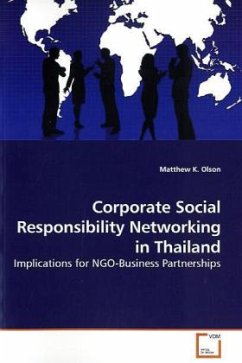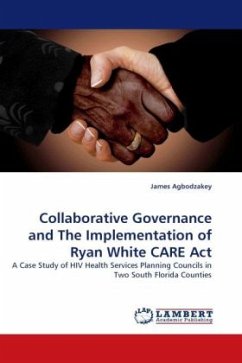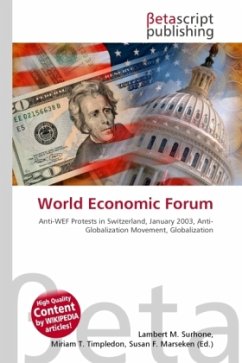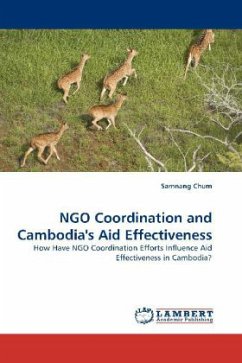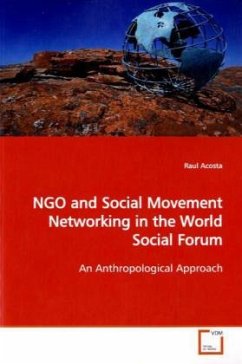
NGO and Social Movement Networking in the World Social Forum
An Anthropological Approach
Versandkostenfrei!
Versandfertig in 6-10 Tagen
32,99 €
inkl. MwSt.

PAYBACK Punkte
16 °P sammeln!
The World Social Forum has become a space for organized citizens to come together for different purposes (support, updates, education, coordination, campaigns, etc.). It has also become a sign of a massive aspiration for the global spread of democratic principles. Its intercultural complexities have not deterred participant organizations from experimenting with new forms of participation and action. The way in which populations from distant corners of our planet have engaged in an open dialogue within the WSF calls also for new ways of understanding such political engagements. This work offers...
The World Social Forum has become a space for
organized citizens to come together for different
purposes (support, updates, education, coordination,
campaigns, etc.). It has also become a sign of a
massive aspiration for the global spread of
democratic principles. Its intercultural
complexities have not deterred participant
organizations from experimenting with new forms of
participation and action. The way in which
populations from distant corners of our planet have
engaged in an open dialogue within the WSF calls
also for new ways of understanding such political
engagements. This work offers an insight through an
anthropological perspective, which suggests a way to
observe and analyze complex intercultural dialogues
on our common future.
organized citizens to come together for different
purposes (support, updates, education, coordination,
campaigns, etc.). It has also become a sign of a
massive aspiration for the global spread of
democratic principles. Its intercultural
complexities have not deterred participant
organizations from experimenting with new forms of
participation and action. The way in which
populations from distant corners of our planet have
engaged in an open dialogue within the WSF calls
also for new ways of understanding such political
engagements. This work offers an insight through an
anthropological perspective, which suggests a way to
observe and analyze complex intercultural dialogues
on our common future.



